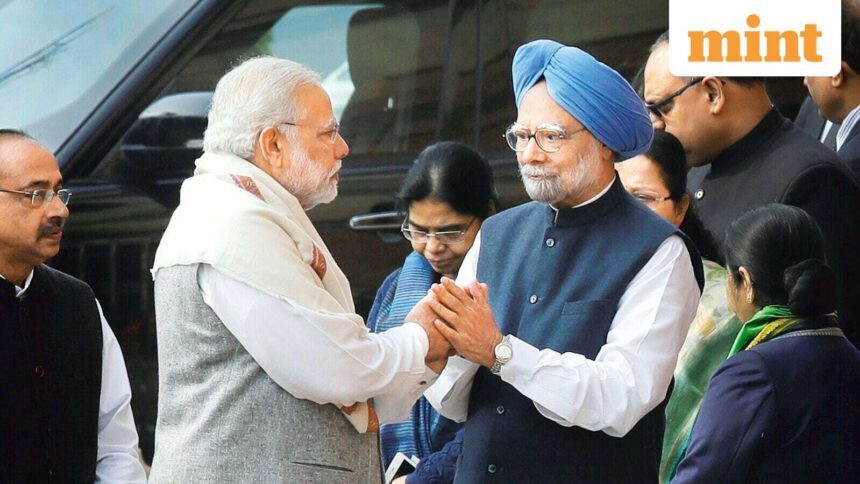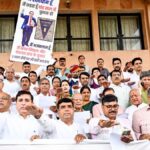Prime Minister Narendra Modi paid tribute to former Prime Minister Manmohan Singh on his birth anniversary, acknowledging his significant contributions to India throughout his extensive public service career. On the social media platform X, Modi stated, “Tributes to former PM Dr. Manmohan Singh Ji on his birth anniversary. We recall his contributions to our nation during his long years in public life.”
Manmohan Singh, who served as India’s Prime Minister from 2004 to 2014, is especially noted for his role in the Congress-led UPA government. His period as Finance Minister between 1991 and 1996 is often viewed as transformative, marking the initiation of substantial market reforms and reducing state control over the economy.
Born on September 26, 1932, in Gah—now in Pakistan—Singh emerged from humble beginnings to become an influential figure in India’s modern history. An accomplished economist, he was the Governor of the Reserve Bank of India from 1982 to 1985.
Singh’s leadership is characterized by significant achievements, including substantial economic growth, social development efforts, and enhanced global diplomacy. Key initiatives during his tenure included the rights-based welfare framework, the historic farm loan waiver, and the landmark Indo-US nuclear agreement.
In his inaugural speech as Finance Minister on July 24, 1991, Singh famously quoted Victor Hugo, remarking, “No power on earth can stop an idea whose time has come.” He added, “I do not minimise the difficulties that lie ahead… Let the whole world hear it loud and clear. India is now wide awake. We shall prevail. We shall overcome.”
Reflecting on India’s economic liberalization three decades later, Singh referred to Robert Frost’s poem, emphasizing, “But I have promises to keep, and miles to go before I sleep.” As a proponent of fiscal prudence, he adeptly guided India through the global financial crisis of 2008, enacting policies to shield the economy from significant disturbances.
Under Singh, India’s global standing was strengthened, exemplified by partnerships with various world leaders and the signing of the India-US Civil Nuclear Agreement, which helped end India’s nuclear isolation.
His leadership style, marked by intellectual rigor and a quiet demeanor, made him a respected figure, despite the challenges he faced. Singh’s legacy includes several pivotal reforms, such as the National Rural Employment Guarantee Act (NREGA), later renamed MGNREGA, and the Right to Information Act (RTI) of 2005, which enhanced governmental transparency.
During Singh’s tenure, India experienced an average economic growth rate of 6.7% under the UPA, although his second term (2009–2014) faced considerable obstacles, including rising inflation and a slowdown in bureaucratic decision-making labeled “policy paralysis,” as well as growing concerns over corruption, particularly in the telecom licensing sector.
(With inputs from agencies)










